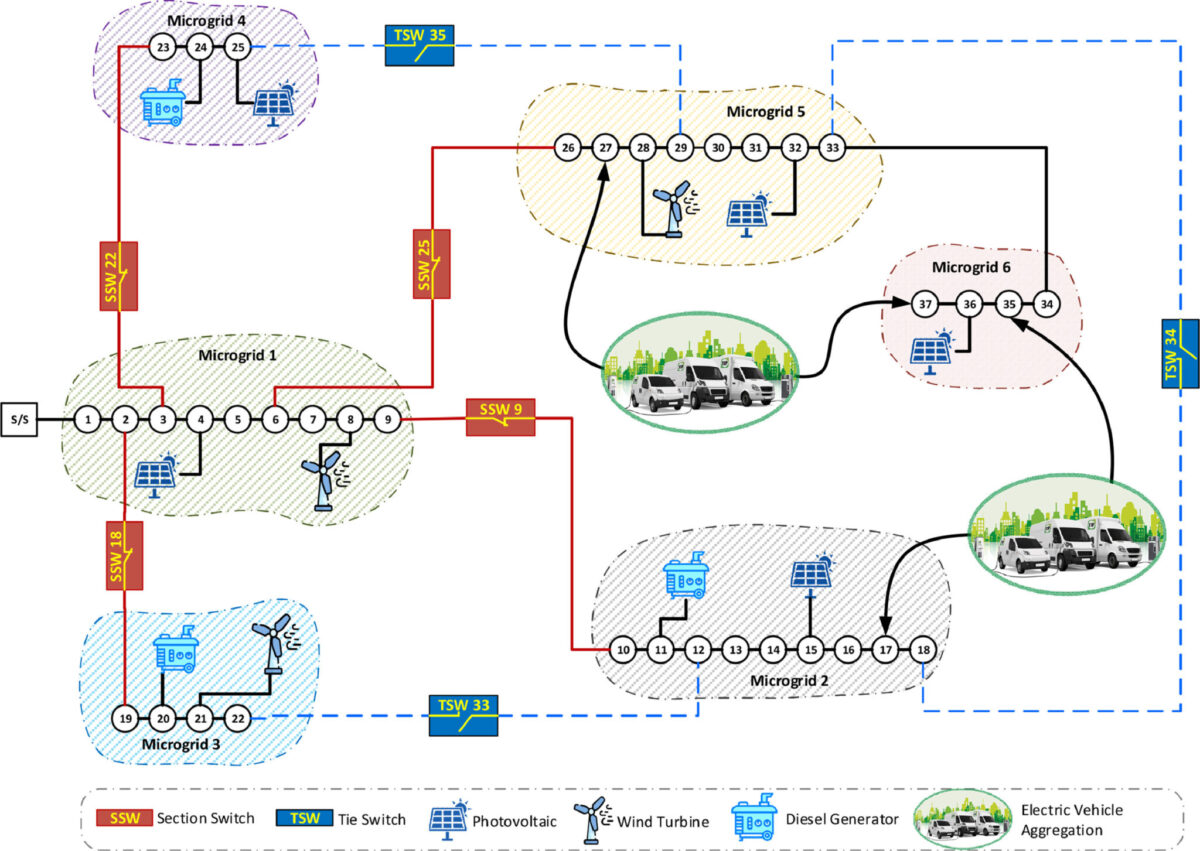https://www.pv-magazine-australia.com/2024/03/15/researchers-link-multiple-microgrids-with-v2g-for-more-flexible-economic-system/
Researchers link multiple microgrids with V2G for more flexible, economic system

The proposed multi-microgrid system
Image: Deakin University, Electric Power Systems Research, Creative Commons License CC BY 4.0
Microgrids, which are originally designed for predefined load demands, face vulnerabilities when accommodating additional demands such as electric vehicles (EVs). Merging renewable energy resources, energy storage, and EVs in a residential setting frequently brings challenges, such as overload or surplus generation, and creates dispersed microgrids, which are vulnerable if operated individually.
A research team with members from the UTS, Deakin and Murdoch universities have studied how microgrids can be linked, combined with vehicle-to-grid (V2G) charging, making them better able to adjust to flexible loads. The researchers found that there were additional techno-economic benefits for distribution network service providers (DNSPs), such as minimising renewable energy curtailment.
The research focused on interconnecting a group of scattered microgrids to create a multi-microgrid system. By developing an energy management strategy to reconfigure the interconnections among microgrids, the researchers have facilitated the efficient exchange of power among these multi-microgrid systems, addressing the variability in load demands in the face of intermittent generation of renewable generation. To further enhance the flexibility of the model, they have also integrated grid-to-vehicle (G2V) and V2G concepts.
The proposed approach, characterised by its mathematical convexity, allows distributed network service providers (DNSPs) to utilise commercial platforms like CPLEX and GUROBI, which can in turn enable them to find feasible solutions more effectively, with minimal computational burden. The effectiveness of the proposed method is demonstrated through its implementation on a modified 33-bus test system operated as multi-microgrid system.
“The results show the effectiveness of the proposed approach as a promising tool for optimizing the operation of reconfigurable multi-microgrid systems in the presence of electric vehicle aggregations (EVAs), leading to operational cost reduction and voltage profile enhancement,” the researchers stated.
Their findings are discussed in the paper “Stochastic scheduling of energy sharing in reconfigurable multi-microgrid systems in the presence of vehicle-to-grid technology,” which was published in the journal Electric Power Systems Research.
This content is protected by copyright and may not be reused. If you want to cooperate with us and would like to reuse some of our content, please contact: editors@pv-magazine.com.
<




